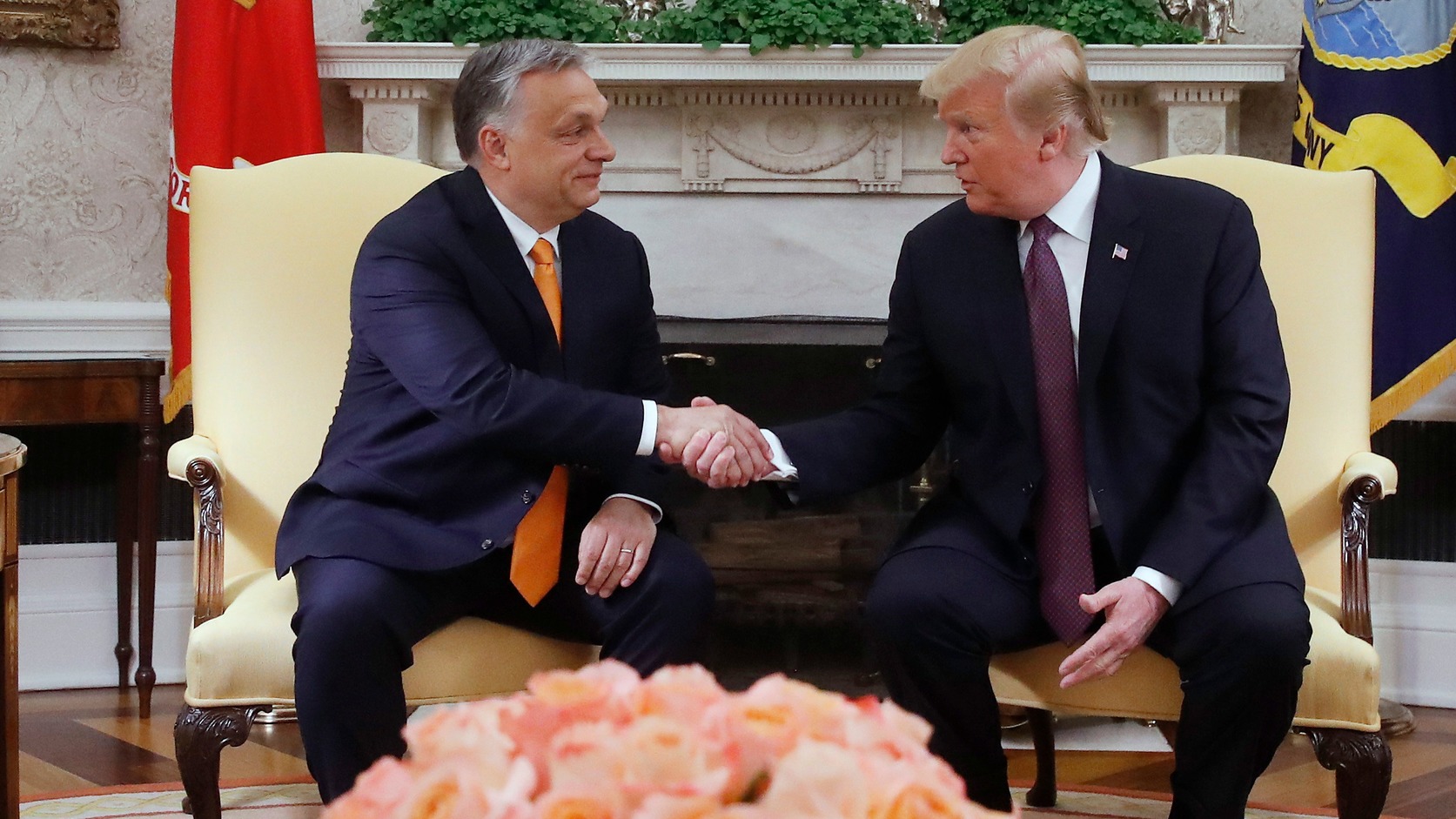by Nicolai Due-Gundersen
“You’re respected all over Europe,” Trump insisted when meeting Hungarian Prime Minister Viktor Orban at the White House in May 2019. For his part, Orban confirmed that his views on immigration were aligned with Trump’s border wall mentality. “I would like to express,” Orban declared, “that we are proud to stand together with [the] United States on fighting against illegal migration, terrorism, and to protect and help Christian communities.” In fact, Orban’s Hungary is known for its hi-tech border wall while limiting asylum seekers to two a day. To Trump, Orban is an inspiration when it comes to curbing refugee numbers to the point that observers argue Trump’s border wall dream is “straight out of the Hungarian playbook.”
In turn, Orban’s immigration stance is influenced by a Middle Eastern dictator about whom the U.S. and Hungary do not agree: Syrian leader Bashar al-Assad. As of September 2019, Hungary appears to be taking steps toward diplomatic normalization with Assad. Such a move may be tentative but comes atop negative reactions (and supposed pro-Russian bias) toward U.S. airstrikes in Syria and domestic backlash over Hungary’s ‘golden visa’ scheme launched under Orban, which Hungarian MPs argue gave sanctuary to a key member of Assad’s regime who has been vital to maintaining the Syrian regime’s cash-flow across the Middle East and Russia.
Ironically, Hungary’s plans to send a diplomat back to Syria and eventually reopen their Damascus embassy can be linked to the issue on which Orban and Trump agree: the need to limit refugees. While on paper Budapest insists the diplomatic move is to strengthen its aid efforts in Damascus (aid which seems earmarked almost exclusively for Christian communities), the wider political context suggests otherwise. Under Trump’s ‘respected European statesman,’ Islam has been demonized, with Orban publicly cursing refugees as a source of invasion. “We will never allow Hungary to become a target country for immigrants,” he insisted on national television. “We want to keep Hungary as Hungary.” And what better way to keep Hungary pure than to build a wall and have Brussels pay for it?
It is in this context of the refugee crisis, and the dehumanizing of men, women, and children fleeing for their lives, that Orban is reaching out to Assad. And so the refugee crisis is coming full circle and, as Assad wants, becoming another tool for regime survival. Already in a 2015 interview, Assad removed himself from blame for the Syrian civil war and declared that it was the West’s support of so-called terrorists that fed the refugee crisis. “As long as [the West] follows [anti-Assad] propaganda, they will have more refugees,” he warned. “if you are worried about them, stop supporting terrorists.” Assad’s government continues seducing the West into returning Syrian refugees. His government offers tours of regime-controlled areas to Westerners, selling the story that Syria is becoming more stable. Stories of such tourists taking selfies in-country disgusts Syrian refugees in exile, but as part of Assad’s narrative that refugees will overwhelm the West at a time when they can really come home, it is having the intended effect. Europe no longer presents a united front against Assad. With Russia heavily supporting the Syrian dictator and even discussing reconstruction of key infrastructure, the EU is unable to make up its mind whether Assad should be squeezed out or whether, as one retired Jordanian diplomat told me, the devil you know is better than the devil you don’t.
Already in August of 2019, a French delegation was welcomed by President Assad, in defiance of EU sanctions. Southern and Eastern European states are especially beginning to change their stance toward Assad. And the fear of refugees is at the core of such fragmentation. “The latter group of countries,” explains analyst Anchal Vohra, “view relations with Syria primarily through the lens of the refugee crisis. They believe that by granting recognition to Assad for having won the war, and assisting him in reconstructing his country, they will be able to expedite the return of Syrian refugees.”
Assad’s insistence that the refugee crisis is a threat to Europe and the West seems to have piqued fears of conspiracy in his Hungarian counterpart. In the same year that Assad warned the West that going against his regime would increase refugee flow, Orban gave an interview in which he wondered why no one “raised the question of whether the [refugee crisis] is more about our existence, our cultural identity and our way of life. [The] suspicion arises that none of this is happening by chance. I am not brave enough to publicly talk about this as a certainty; the suspicion inevitably emerges, however, that there is some kind of master plan behind this.”
And for returning Syrians, Assad’s true welcome is torture, hostility and suspicion. Playing the refugee card is paying off for Assad, as refugees are increasingly finding that they are under suspicion at home and abroad. “Many people in the [Hungarian] government think that the question of engaging Assad is not a question of if, but when it is going to happen,” reveals a source close to the Hungarian government. If Hungary’s overtures are followed by fellow EU states, Assad may represent a disturbing first model of a president-for-life who thwarted the Arab Spring.
Nicolai Due-Gundersen is a political commentator at Kingston University, London and author of The Privatization of Warfare (Cambridge: Intersentia). He is former adviser to the Arab Institute for Security Studies in Jordan. Follow him on Twitter @nicolaiofarabia.






i live in israel , we have walls here too , and they are even more effective than those of the us or hungary , or of any country in the world
hungary , and eastern europe in general are poor and racist countries , anyway there are no future for migrants there , so why would they wanna go there ?! germany or sweden are way better
Well, we know the author’s point of view about the “Assad régime”, dictator etc. Remember the Libyan “dictator” warning about the flow of refugees to Europe- was that true?? Why has the EU got sanctions against Syria (and Russia, of course)?? Why is the USA allowed to help whoever it chooses to find as allies regardless of the consequences? Look at Yemen now, and the delightful allies Saudi Arabia. Is peace ever even considered.
Orban has a huge propaganda machine, just like Trump and Putin, and he runs Hungary almost like a dictatorship. He has made a name for himself in white nationalist circles by pretending to fight immigration which is actually non existent in Hungary because nobody wants to live there. No doubt his mentor Putin ordered him to befriend Assad, and Orban expects a reward for good behaviour.